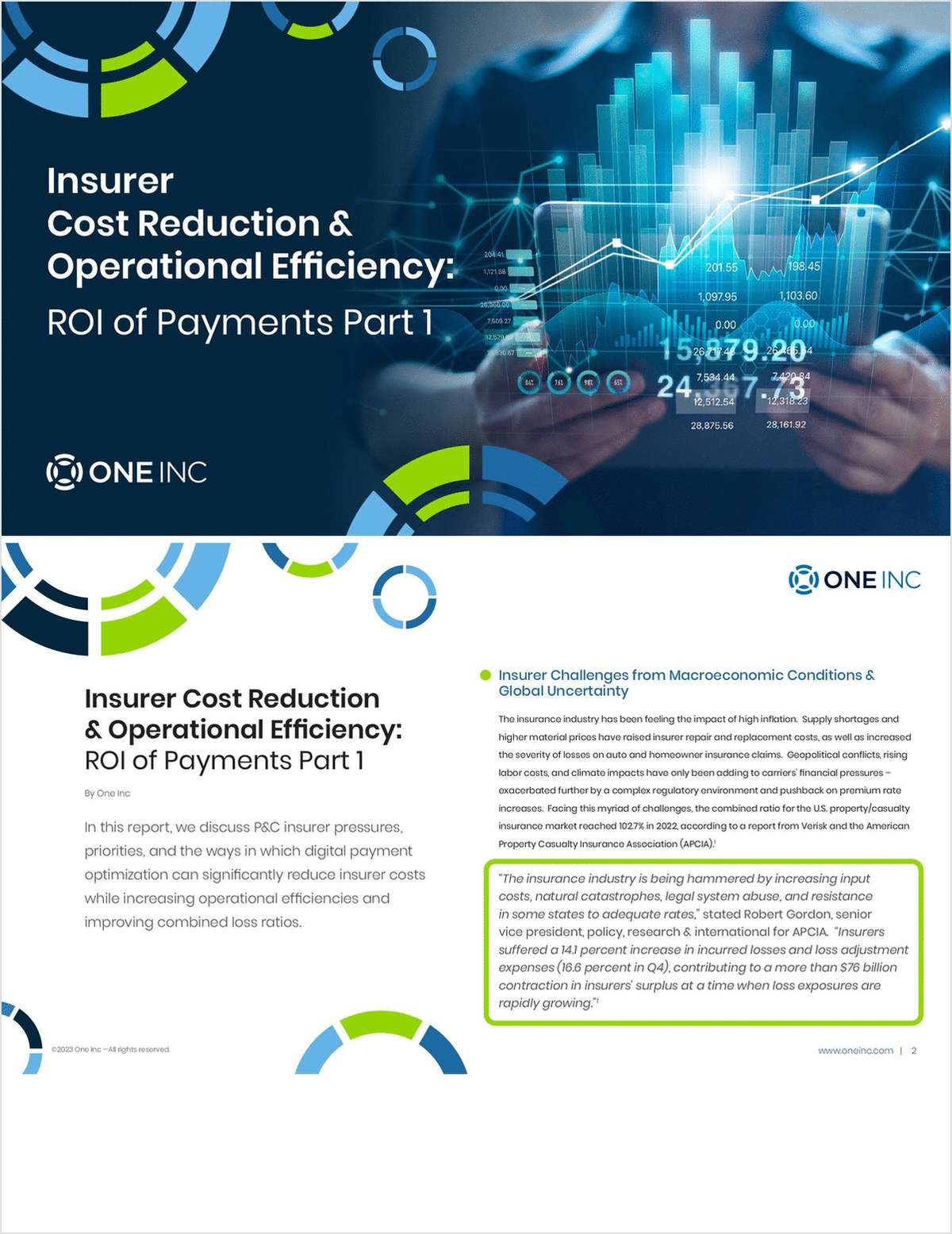NU Online News Service, Dec. 7, 3:27 p.m. EST
A representative of international insurers sees conclusions of the deficit panel last week as a positive for the international insurance industry, noting that it calls for lower corporate tax rates in the U.S. as well as a revised tax scheme consistent with those in most other countries.
The panel, the National Commission on Fiscal Responsibility and Reform, unveiled Friday a blueprint designed to tackle the nation's exploding budget deficit problems. While 11 of the 18 panel members voted to support the final blueprint that the commission developed, the vote was four short of the necessary supermajority necessary to put the report automatically before the Congress.
But in comments as the blueprint was released, Democratic co-chair Erskine Bowles said the panel's work shows it is possible to have "an adult conversation about the deficit."
And his Republican co-chair, former Wyoming Sen. Alan Simpson, said the panel "took a big banana and threw it into the gorilla cage." Now, he predicted, lawmakers will play with it, "but they will eat some."
Brad Kading, president and executive director of the Association of Bermuda Insurers and Reinsurers (ABIR), said he believes the conclusions of the panel imply that "corporate tax reform is politically feasible in the future."
He implied that corporate tax reform and a change in the U.S. tax structure to only tax the U.S. earnings of multinational companies based in the U.S. means that pressure would be reduced for increasing taxes on foreign insurers, such as that proposed by Rep. Richard Neal, D-Mass., a ranking member of the House Ways & Means Committee,
The Neal bill, H.R. 3424, would raise $17 billion over 10 years by disallowing the tax deduction for reinsurance between affiliated entities.
Mr. Kading said the election of a Republican-controlled House in the mid-term election has also changed the debate over the foreign tax issue.
Because the deficit panel conclusions are consistent with views of House Republicans, Mr. Kading said, it creates bipartisan support for a U.S. tax policy more consistent with the policies in all other nations.
He also said that Chubb and the Berkley Companies officials–leaders of a coalition supporting the Neal bill–have testified that their overall objective in seeking the higher tax on foreign insurers and reinsurers is to lower the tax rate for domestic insurers.
"The deficit panel proposal would accomplish what the coalition supporting the Neal bill ultimately wants to accomplish" without the foreign tax, Mr. Kading said.
Another component of the deficit panel recommendations is to impose a "territorial tax system" in the U.S., the same system used by most foreign countries, Mr. Kading said.
Currently in the U.S., he explained, the earnings of U.S.-based companies are taxed even on their overseas earnings. Most other countries, he said, only tax the earnings of companies in their jurisdiction.
Besides tax reform, specific proposals for deficit reduction dealing with the property and casualty industry included "aggressive tort reform" as well as a recommendation for creation of a disaster fund whose purpose to be to "budget honestly for catastrophes."
Want to continue reading?
Become a Free PropertyCasualty360 Digital Reader
Your access to unlimited PropertyCasualty360 content isn’t changing.
Once you are an ALM digital member, you’ll receive:
- Breaking insurance news and analysis, on-site and via our newsletters and custom alerts
- Weekly Insurance Speak podcast featuring exclusive interviews with industry leaders
- Educational webcasts, white papers, and ebooks from industry thought leaders
- Critical converage of the employee benefits and financial advisory markets on our other ALM sites, BenefitsPRO and ThinkAdvisor
Already have an account? Sign In Now
© 2024 ALM Global, LLC, All Rights Reserved. Request academic re-use from www.copyright.com. All other uses, submit a request to [email protected]. For more information visit Asset & Logo Licensing.








